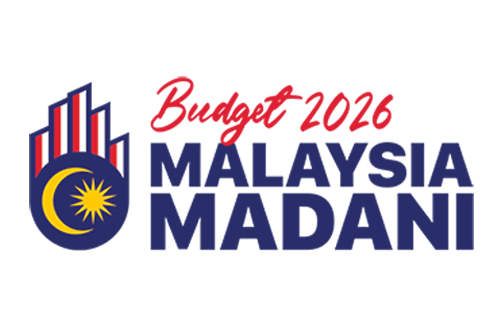IDEAS launches Pantau Kuasa to track political appointments in Federal Statutory Bodies (FSBs)

Kuala Lumpur, 28 September 2021 – The Institute for Democracy and Economic Affairs (IDEAS) has launched its online platform Pantau Kuasa, which is designed to help track political appointments in federal statutory bodies (FSBs) in Malaysia. As part of their launch, IDEAS organized a webinar entitled ‘Ensuring GLC Reforms in The Times of Government Change’ to discuss the website, with speakers including Tricia Yeoh, IDEAS CEO, YB. Dr. Ong Kian-Ming, Member of Parliament for Bangi, and Prof. Edmund Terence Gomez, Former Professor of Political Economy, University of Malaya.
The Pantau Kuasa platform tracks politicians that were appointed as chairmen or directors of FSBs, and will later be expanded to track appointments in Government-Linked Companies (GLCs) under the next phase of the initiative. The Pantau Kuasa website includes visualisations of political appointments made in Malaysian FSBs under three administrations between 2015-2021: Barisan Nasional, Pakatan Harapan, and Perikatan Nasional. The composition of political appointments can be broken down by government administration, ministry and political party.
The project defines political appointments as people who hold positions as chairmen or directors of an FSB or GLC with a legislative position such as MP or ADUN, executive positions including Federal Minister and Chief Minister, and finally members of a political party.
The ultimate goal of the Pantau Kuasa initiative is to capture the extent that politicians are being appointed to the boards of all state-owned enterprises (SOEs), and to create greater public awareness and demand for SOE accountability by delivering data in a user-friendly manner. Finally, the end goal of the project is to reduce the use of SOE appointments for political patronage and ensure greater accountability and improvement in SOE performance.
As stated by Tricia Yeoh, “With the launch of the 12th Malaysia Plan, the government has indicated that it recognises the contribution that GLCs will continue to make to the economy. Though the plan gives importance to improving the governance of GLCs, it falls short of how this will be implemented. The Pantau Kuasa website provides a very meaningful contribution to researchers, civil society, journalists and even politicians as they consider how to reform GLCs and FSBs in the future. Academics will depend on this data repository in their research and writing, and the website provides well-researched input that can and will stimulate public discourse over important topics such as how efficient and well-governed GLCs can flourish in Malaysia.”
Discussing reforms to be made with regards to GLC governance, Prof. Edmund Terence Gomez stated that GLC reform is not merely about institutional reforms, but rather should focus on the overall GLC ecosystem. He stresses that policy reforms ultimately depend on the nature of the institutions since it varies at the federal and state level. Dr. Gomez said, “The Pantau Kuasa website is a brilliant initiative and I congratulate IDEAS on its efforts”.
“When the government intervened to save the economy during the global pandemic”, Prof. Gomez observed, “it was clear that GLCs could be used to help people in need. However, not long after, the government sought to appoint politicians as directors of these GLCs. In particular, Muhyiddin sought to consolidate his position by providing GLC directorships to politicians. Through these directorships, these politicians were provided a stipend, which is completely unnecessary.”
YB Dr Ong Kian Ming concurred, stating, “Statutory bodies have a wide range of roles and responsibilities (unlike publicly listed corporations) and covers regulatory areas (such as the National Water Services Commission SPAN, or the Sustainable Energy Development Authority SEDA), financing lending (Perbadanan Tabung Pendidikan Tinggi Nasional, PTPTN), and education (all the public institutions of higher learning), just to name a few. Hence, these require different frameworks of analysis. We need to have more transparency and accountability for all of these institutions, but because they were formed with different objectives, the specific structures for accountability and action would be very different for publicly listed companies versus statutory boards”
“Ultimately there are pros and cons to appointing politicians to the boards of statutory bodies”, YB Dr. Ong stresses, “(where) on one hand, it could be seen as a form of compensation to politicians who did not win in the last elections. On the other hand, it will provide MPs with relevant policy experience and knowledge of the regulatory practices of FSBs to prepare them for ministerial positions.”
— END —
Download Media Statement PDF File Here
For enquiries, please contact:
Zokhri Idris, Ph.D, Director, External Relations
T: +603 2070 8881/8882 | E: zokhri@ideas.org.my

